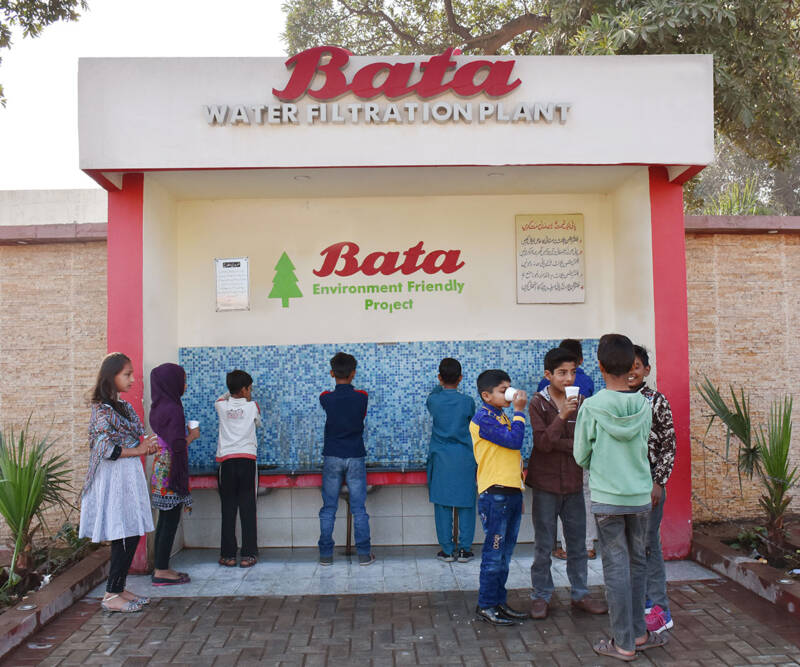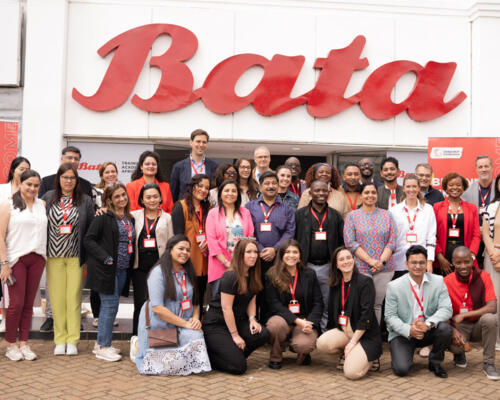Safe water to save lives, Pakistan

The communities surrounding Bata factories at Batapur and Maraka in Pakistan faced an acute water shortage when supply from the Government became insufficient and poor quality meant it was practically not drinkable. Unsafe water contributes to debilitating and life-threatening illnesses such as dysentery, cholera, and hepatitis. Waterborne diseases are a cause of 40% of all deaths in Pakistan. According to the World Bank, almost 64% of Pakistanis are deprived of safe drinking water.
To provide much-needed relief and support the health of its neighborhoods, Bata built water filtration plants outside the boundary walls of the factories. Each plant produces 500 liters per hour of hygienically tested safe drinking water for the entire community. The brightly illuminated areas with multiple faucets and sinks have enough clean water supply for up to 5,000 people per day.
Accessing clean drinking water is one of our basic human rights. The filtration plants are helping to deliver against Goal 6 of the UN’s Sustainable Development Goals (SDG’s): clean water and sanitation. The plants also represent Bata’s strong commitment to building sustainable resources for the benefit of its local communities.
500
Liters per hour of safe water produced
5,000
People with access to clean water per day


